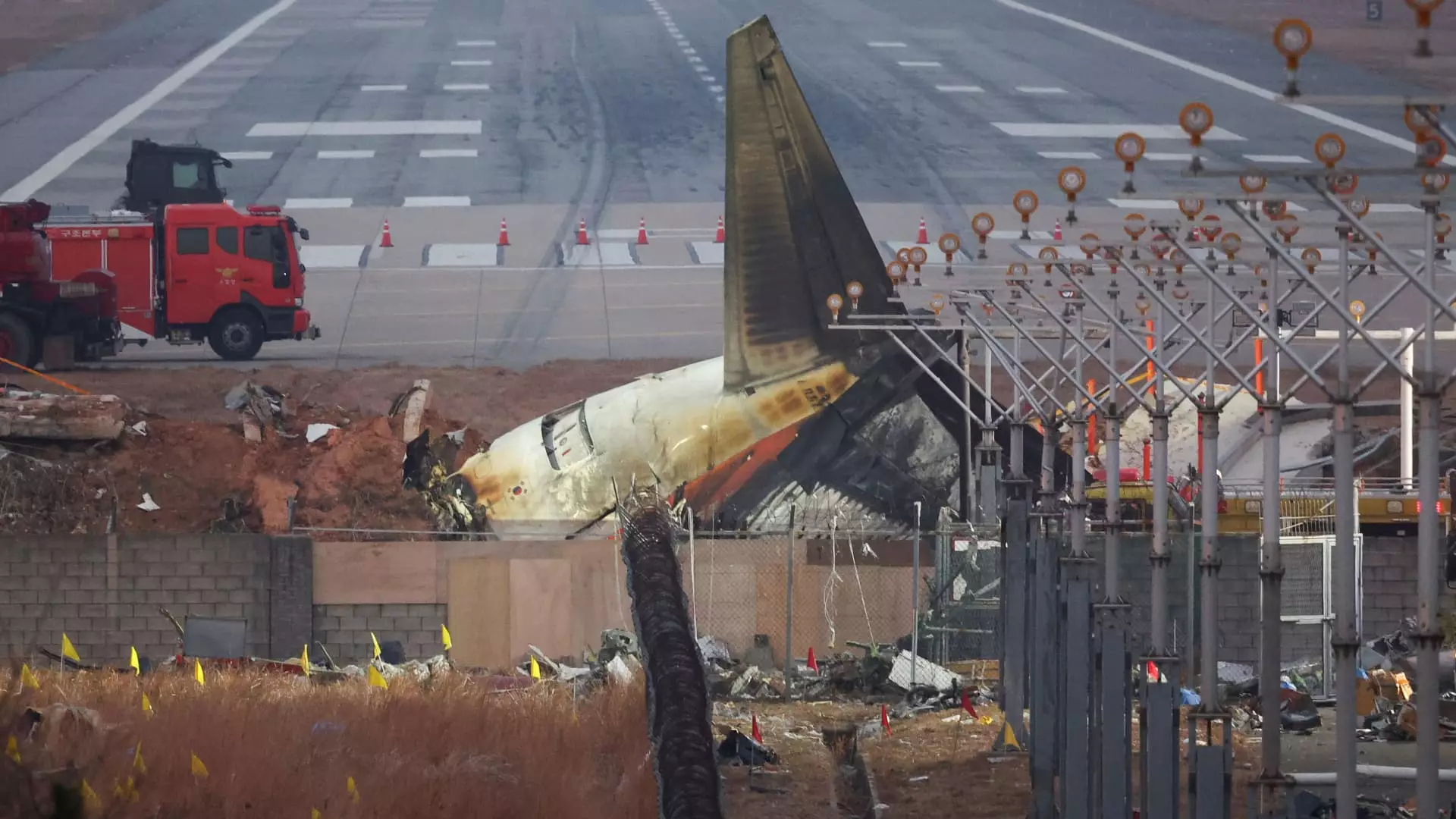The recent tragic incident involving a Jeju Air Boeing 737-800 has sent shockwaves through the aviation industry, especially in South Korea. Following the crash that resulted in the loss of 179 lives, regulatory bodies in South Korea are scrambling to ensure the safety of the aircraft model and investigate potential underlying issues. This disaster not only raises concerns about airline safety but also reflects the broader challenges faced by the aviation sector in maintaining public trust amid such calamities.
After the crash, South Korean authorities wasted no time declaring an emergency inspection of all 737-800 aircraft operated by local airlines. Acting President Choi Sang-mok emphasized the necessity of scrutinizing the entire airline operation system, underscoring an urgent need for heightened safety protocols. The Ministry of Land, Infrastructure, and Transport (MOLIT) announced plans for a “comprehensive special inspection” to assess the airworthiness of these planes.
Initial reports surrounding the crash paint a concerning picture. On approach to Muan International Airport, the aircraft reportedly experienced landing gear issues, skidding off the runway and colliding with a wall. The survivors—a mere two crew members—were miraculously rescued from the wreckage, highlighting the tragic outcome where only a fraction of the passengers retained their lives.
Investigation into Causes
As investigations commence, early indications suggest that the pilot reported a “bird strike” shortly before the incident, coinciding with warnings from the airport control tower regarding avian activity in the vicinity. The pilot’s declarations of a “go-around” and a “Mayday” signal further complicate the understanding of the events leading up to the crash. Authorities retrieved two black boxes to piece together the sequence of events, while U.S. investigators from the National Transportation Safety Board have joined the oversight process—signaling the international ramifications of this incident.
Interestingly, while the focus has shifted to the immediate factors surrounding the crash, experts contend that it is unlikely any design flaw contributed to this tragedy. The Boeing 737-800 has built a solid reputation over nearly three decades, being one of the most widely utilized aircraft globally with a significant proportion operated by low-cost carriers in South Korea.
The Bigger Picture: Examining Safety Protocols
Jeju Air, the largest operator of the 737-800 in the region, along with other airlines like T’way Air and Korean Air, faces intensified scrutiny as regulatory bodies conduct thorough inspections of operational records and maintenance protocols. The aviation sector is known for its rigorous safety measures; however, this tragedy has ignited discussions on whether current regulations adequately address potential hazards.
Ju Jong-wan from MOLIT indicated a plan to bolster regulations specifically pertaining to bird strikes, suggesting that such external factors may have played a significant role in the crash. As new airports are being constructed, there’s an urgent need to incorporate thoughtful design and preventive measures regarding wildlife management to avert similar incidents in the future.
Boeing, despite its reputation for robust safety standards, saw its share price decline by over 2% in the aftermath of the incident. The necessity of regaining public confidence in the brand is now paramount, especially given past setbacks with other models like the 737 Max. The company expressed condolences to the victims’ families and reiterated a commitment to supporting Jeju Air through this crisis.
Meanwhile, Jeju Air’s stock plummeted by nearly 8.65%, reaching an all-time low as investors reacted to the unfolding disaster. The company has busy days ahead in addressing investor concerns while maintaining transparency with the public. As Song Kyung-hoon, head of Jeju Air’s management support office, defended the safety protocols, he also highlighted an essential aspect of the airline industry: the unrelenting need for maintenance and operational integrity.
Future Outlook
The ramifications of the Jeju Air crash extend far beyond immediate safety inspections. This incident serves as a stark reminder of the volatile nature of air travel, where public confidence can be swiftly shaken by unforeseen tragedies. As investigators sift through data and maintenance logs, a comprehensive understanding of the factors at play will be crucial in shaping the future of aviation safety.
While the Boeing 737-800 has an excellent safety record, the Jeju Air crash raises pertinent questions regarding aviation safety regulations and operational protocols. It reminds all stakeholders—from regulatory bodies to airline operators—of their enduring responsibility to prioritize passenger safety above all else. As the investigation unfolds, it is hoped that the lessons learned will usher in new standards that prevent such catastrophes from recurring, safeguarding the future of air travel.

